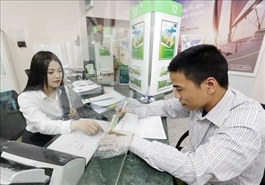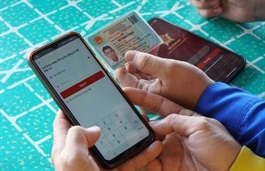Vietnam accelerating towards a cashless society
Vietnam accelerating towards a cashless society
For the first time, the Vietnamese legal framework formally defines electronic money. Under Decree No.52/2024/ND-CP, electronic money is “the value of Vietnamese currency co-stored on electronic means provided on a reciprocal basis with the amount prepaid by customers to banks, foreign bank branches, and intermediary payment service providers providing e-wallet services.” This definition establishes electronic money as a digital form of Vietnam’s legal currency.

Decree 52 specifies two primary methods for storing electronic money: e-wallets and prepaid cards. The provision and use of these are governed by specific regulatory requirements outlined by the State Bank of Vietnam (SBV), covering various aspects such as eligible users, principles for providing and using the services, the scope of services, and obligations of the parties involved, including data protection and reporting.
Despite drafts hinting at its inclusion, Decree 52 excludes mobile money as a storage method. The sandbox period for mobile money has been extended until the end of this year. This likely explains why mobile money is not included in the current decree, as the outcomes of the sandbox are still pending.
Entities authorised to provide electronic money under Decree 52 include banks, foreign bank branches offering e-wallet and prepaid card services, and intermediary payment service providers offering e-wallet services linked to customers’ payment accounts at the payment service providers. Intermediary payment service providers must ensure that the total balance on all accounts guaranteeing payment for e-wallet services opened at banks and foreign bank branches is not lower than the total balance of all e-wallets issued to customers.
A representative of the SBV shared with the press that with electronic money now defined as a digital form of Vietnam’s legal currency, different legal terms are expected to be used for virtual currencies and digital assets. This distinction aims to help eliminate illegal payment methods by clearly separating legitimate electronic money from other digital assets.
To address the complexities of international payments, Decree 52 establishes a detailed framework aimed at enhancing competition and compliance. Current reliance on international payment gateways and card organisations has led to reduced competition and disparities. Additionally, cross-border money transfer services, such as Western Union and MoneyGram, lack specific legal regulations for licensing and commercial presence.
The introduced framework for banks and intermediary payment service providers outlines several key points. Commercial banks and foreign bank branches can participate in international payment systems upon meeting specified conditions, subject to written approval by the SBV.
Foreign payment service providers offering payment services to non-residents and foreign residents in Vietnam for goods and services transactions must do so through commercial banks or foreign bank branches approved by the SBV to join their international payment systems. Intermediary payment service providers, except for financial switching service providers, can offer payment services for international transactions. Payments and settlements for these transactions must be conducted through commercial banks or foreign bank branches authorised by the SBV for foreign exchange activities in international markets.
The new decree also emphasises stringent compliance requirements for all international payments. Providers must adhere to regulations concerning foreign exchange management, user data protection, cybersecurity, tax management, anti-money laundering, and counter-terrorism financing. Additionally, conformity with international agreements and treaties on payments that Vietnam participates in is mandatory.
Payment accounts are also under the spotlight, with enhanced regulations reflecting updated practices related to opening and using payment accounts, authorisation for account use, freezing payment accounts, post-unfreeze processing, and account closure. These updates ensure clearer guidelines, greater security, and more flexibility in managing accounts.
From a public perspective, one of the standout features may be the introduction of new rules for freezing payment accounts. The SBV mandates that payment service providers freeze accounts with evidence of fraud or legal violations. Additionally, in cases of mistaken fund transfers, freezing accounts enables customers to recover misdirected funds, addressing a significant public concern.
Initially, it was proposed that foreign investors could hold a maximum ownership ratio of 49 per cent, both directly and indirectly, in intermediary payment service providers. However, this provision was ultimately omitted from Decree 52.
Although the foreign ownership cap was not included in the decree, the initial proposal still highlights the cautious approach of state authorities. Intermediary payment services remain an uncommitted sector in Vietnam’s commitments to the World Trade Organization and international treaties to which Vietnam is a member, such as the Comprehensive and Progressive Agreement for Trans-Pacific Partnership. It is also classified as a conditional business sector.
Thus, when seeking approval for acquisition of shares or contributed capital by foreign investors in relevant intermediary payment service providers, it is common practice for applications to be meticulously scrutinised by state authorities.
























